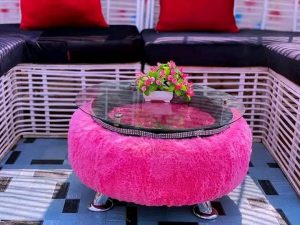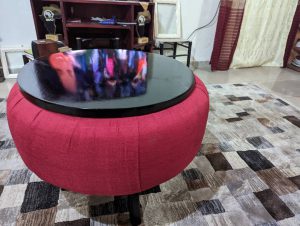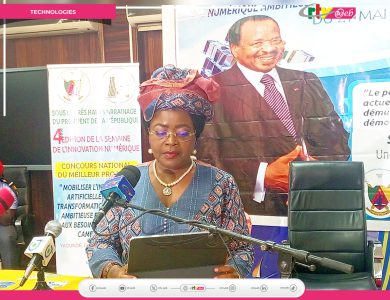Environmental problems and health hazards posed by the disposal of used tyres, have prompted most industrialised Institutions in Cameroon to put in place different frameworks to tackle waste management. However, 35-years-old Ayeah Leonette is changing this perception. The artist and environmentalist found an opportunity to convert scrap tyres to household furniture used within her home city of Bamenda, in the Northwest Region of Cameroon.
She started some years ago with this as a business idea before realizing she was fighting environmental degradation through the collection of scrap tyres from running streams, streets or landfills.
“I learned shoemaking and bags out of fabrics and my knowledge from this then got incorporated into the transformation of used tyres to household furniture like chairs, stools and tables. For me, it was about sustaining myself and my son as a single mum but then I realised it was keeping the environment clean. My products are being used in homes, bars, restaurants and offices,” she says.
“Due to the lack of specific dumpsites for these scrap tyres, I collect them alongside my younger brother from running streams, along the streets or in specific areas operating tyres business and dumpsites. I sometimes get called by those who know what I do, to come to collect scrap tyres while others tell me to buy. When I realised this was contributing to fighting pollution, I felt motivated and knew this is a way of giving back to my community. I worked with a few other women but they were not committed and did not see it as a source of income,” Leonette adds”.
In most towns and cities in Cameroon, piles of scrap tyres are a common sight. Residents or companies dealing with used tyres often burn them at night for lack of a safer method of disposal. Environmental experts have pointed out several times that scrap tyres sitting in the sun release methane gas into the air leading to pollution.
While the Government of Cameroon still has a long way to go in recycling, environmentalists hope more resources could be injected to encourage more women and youths to get involved in such activity.
Tanjong Levis Agbor











